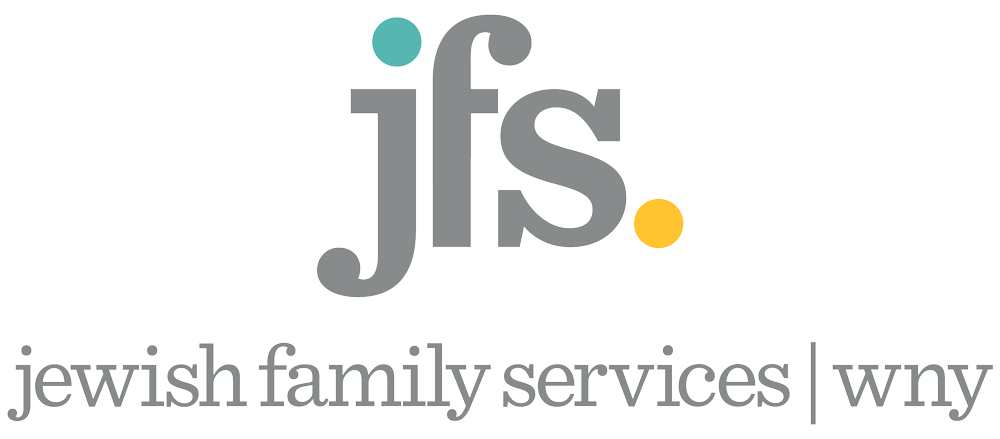Perhaps in Aprils past you’ve seen a garden of pinwheels slowly turning in the breeze and stopped to wonder why they were there. Every April, organizations across the country who work with children and families plant these pinwheel gardens to honor Child Abuse Prevention Month, symbolizing the hope that each child may have a healthy environment in which they can learn, grow, and thrive.
The most recent data available from the U.S. Government shows that nearly 550,000 children are victims of abuse or neglect annually. With the right prevention measures, these numbers can be drastically decreased.
What is JFS doing for Child Abuse Prevention Month?

For Jewish Family Services of WNY, Child Abuse Prevention Month is a time to educate our community about the preventative nature of child abuse while highlighting the work that our Family Support Team does in this realm year-round. Jill Gavin oversees JFS’ Family Support programming at the agency and is extraordinarily proud of the role her team plays in creating safe environments for children on an everyday basis. Jill shares that,
“The foundation of our work on the Family Support Team is tied to promoting families’ Protective Factors. Protective Factors are the opposite of risk factors. When Protective Factors are present, families are stronger, and children are less likely to experience maltreatment. Child Abuse Prevention Month is a chance for us all of us here at JFS to think through the Protective Factors we’re seeing and ask ourselves how we can help promote Protective Factors for the clients we serve to improve children and families’ well-being.”
JFS’ core Family Support services include Parent Support Groups, offering home visits to clients, helping clients increase their access to childcare, and Women’s Empowerment Groups. Together, these services create environments where families can learn together, grow, and ultimately thrive.
5 Ways to promote protective factors in your home
It’s worthwhile for all of us to take a step back and think about how we can increase the protective factors in our own homes and lives, promoting emotional wellness for our families. Below, Jill shares 5 Parenting Tips for Child Abuse Prevention, simple ways that you can strengthen protective factors for your family today.
1. Parental Resilience refers to a parent’s ability to cope effectively with stress and bounce back from difficult situations. Many parents feel guilty prioritizing their own well-being, but research suggests that when parents (especially mothers) are happy and well, children experience lower anxiety and greater health outcomes.
TIP: Shift your mindset around self-care by reminding yourself that taking time to care for yourself is an investment in your child’s well-being. Go for that walk. Do that painting class. Schedule your child for a sleepover at their cousin’s house to get that break you deserve. Your family thrives when you thrive.
2. Strong Social Connections with friends, family, or other community members help reawaken the village feeling that our modern society has lost.
TIP: Find time to reconnect with your loved ones by scheduling a play date or calling an old friend on your next commute. Your heart will thank you.
3.When we know better, we do better, right? By improving your Knowledge of Parenting and Child Development you are better equipping yourself to meet your child’s needs.
TIP: Find a book, podcast, or Instagram account and get to learning! We like Good Inside (the book or the podcast) by Dr. Becky Kennedy – also @drbeckyatgoodinside on Instagram.
4.Today’s society seems to be evolving at an ever-increasing rate, but our basic needs remain the same. Accessing Concrete Support in Times of Need is critical to our physical, mental, and emotional well-being.
TIP: Not sure how to get connected to the resources you need? Call 2-1-1 for assistance navigating the community resources that are out there and available to support you.
5.Did you know that your child’s level of Emotional Intelligence (EQ) is a greater predictor of success in life than their IQ? Helping build your child’s emotional vocabulary is one of the first steps to helping kids handle their big emotions.
TIP: Simple sentences like, “I see you’re feeling angry,” and “I see how sad you are,” can help our children to feel seen, give them language to express their emotions, and ultimately help to improve their Social and Emotional Competence
To learn more about Jewish Family Services of WNY and the programs we offer, click the button below.
